Horror on Skegness beach as experts examined '˜lost and stressed' washed up whales
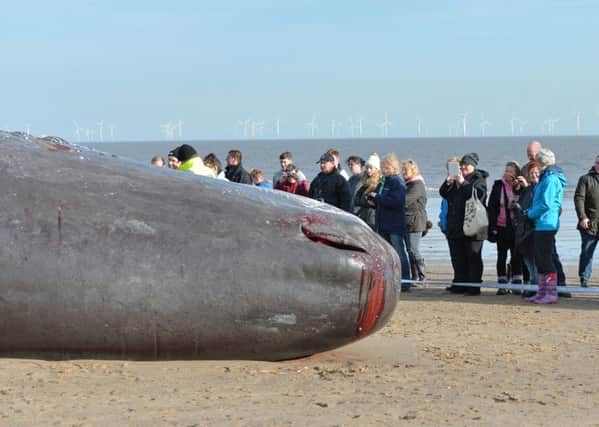

Onlookers were forced to turn away while the gruesome post-mortem was carried out today.
A 45ft-long adult sperm whale was found on Central Beach on Sunday before two more calves were then discovered side by side two-and-a-half miles away.
Advertisement
Hide AdAdvertisement
Hide AdToday, scientists wearing high-visibility jackets used a chainsaw to cut up the 30-tonne mammal as they began the autopsy.
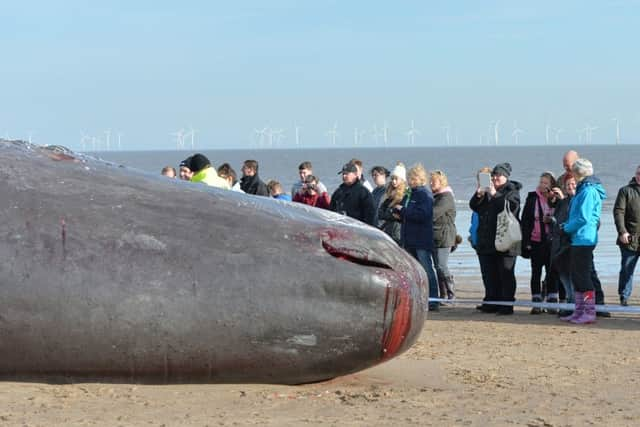

Pictures show the gigantic whale covered in blood with its guts and insides clearly visible after experts hacked away the blubber on its side.
Eyewitnesses on the beach said one of the carcasses even exploded during an examination by scientists.
Tracey Bishell, from Skegness, said: “It’s awful and it’s shocking.
Advertisement
Hide AdAdvertisement
Hide Ad“How did they get here? For three of them to be washed up is awful.
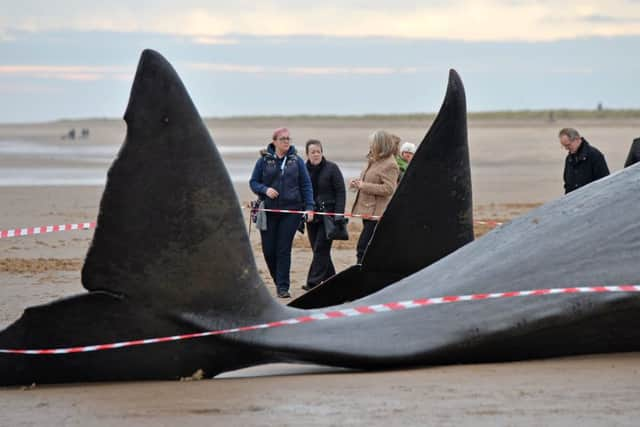

“I didn’t realise until this morning when I came down how bad it was. It’s tragic, it really is.”
Deborah Holden, from nearby Wragby, added: “It’s bad enough having one wash up, but for three of them to beach in Skegness is terrible.
“And when two of them are babies it makes it even worse. It’s been very hard to watch.”
Advertisement
Hide AdAdvertisement
Hide AdSam Rees, of Skegness Aquarium, said: “It’s a very unusual situation and one we don’t really find happening so close to each other.
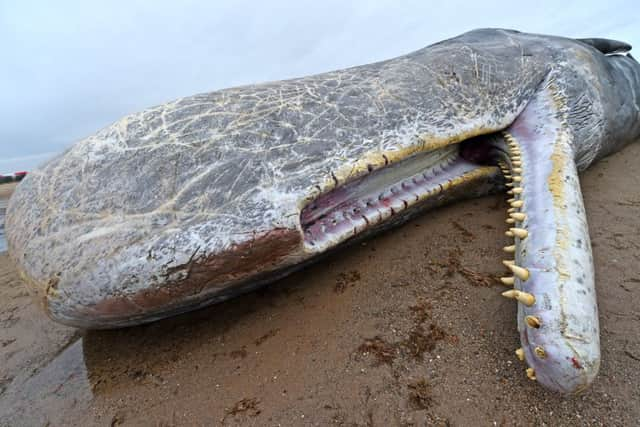

“The general consensus is that it’s a pod (group of whales) that has got lost and they’ve become unstuck through stress meaning that, unfortunately, they have beached themselves.”
Scientists from the Cetacean Strandings Investigation Programme, who investigate all whale, dolphin and porpoise strandings in the UK, took samples from the carcasses.
Programme organiser Rob Deaville said they will test the skin, blubber, teeth and blood to work out the cause of death.
Advertisement
Hide AdAdvertisement
Hide AdHundreds of onlookers flocked to the beach in Skegness over the weekend to see the three whales, with some taking pictures with the carcasses in the background.
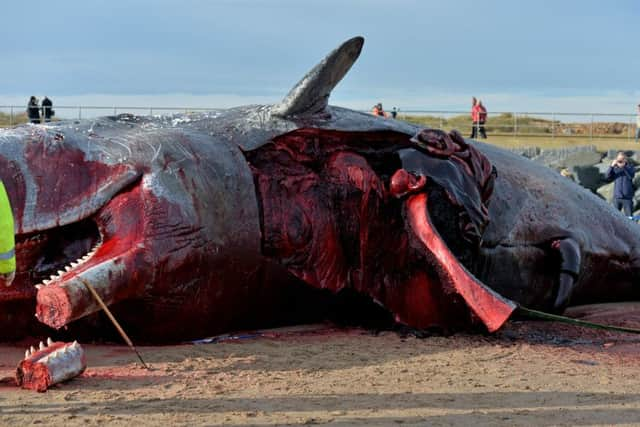

The local council said initial tests had confirmed they were already dead when they were washed ashore.
A spokesman from East Lindsey District Council said: “The council is working with HM Coastguard and the Zoological Society, with the society undertaking a post mortem examination on the carcasses.
“It has been confirmed that the whales were dead when they came ashore.
Advertisement
Hide AdAdvertisement
Hide Ad“It is also believed the whales are from the same pod as the one recently stranded at
Norfolk and there are possible links to strandings in Germany and the Netherlands in recent weeks.”
The local authority now has to wait until permission is granted before the whales can be cut up and removed from the beach.
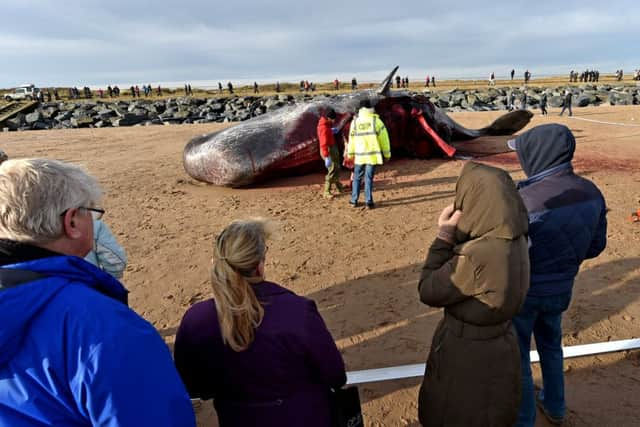

The spokesperson added: “The council has well rehearsed plans for dealing with such situations, having dealt with a number of strandings in recent years, the most recent being in 2012, when a sperm whale weighing around 30 tonnes was beached just north of Skegness Pier.
Advertisement
Hide AdAdvertisement
Hide Ad“Whilst it is understandable that people wish to view the whales, those doing so are asked to not go through the cordon to touch them.
“The council will dispose of their bodies as soon as the relevant permissions are in place.”
The three mammals are believed to be from the same pod as a 50ft-long sperm whale which was found beached on rocks at Hunstanton, Norfolk, on Friday.
Despite attempts by rescuers the giant mammal died on Saturday.
Advertisement
Hide AdAdvertisement
Hide AdSecurity guards even had to be put on the beach in Hunstanton to prevent people from scavenging from the corpse.
Experts believe the whales could have been beached after following their food into the shallower water around the British coast.
Dr Peter Evans, director of the Seawatch Foundation, said: “There have been 12 other sperm whales that stranded and died, six in the Netherlands and six in Germany.
“They were probably all in the same group, quite a big group which are usually adolescent males a few years old.
Advertisement
Hide AdAdvertisement
Hide Ad“They feed on squid and what’s probably happened is that squid came in and the whales fed upon them but ran out of food.
“The further south they got the shallower the water gets and when they got to Norfolk, which is very, very shallow, it’s quite difficult to navigate and they tend to lose their way and actually strand.”